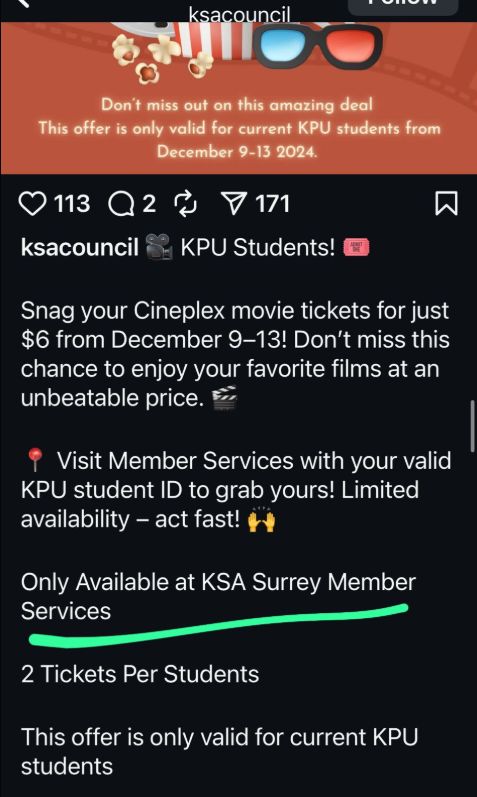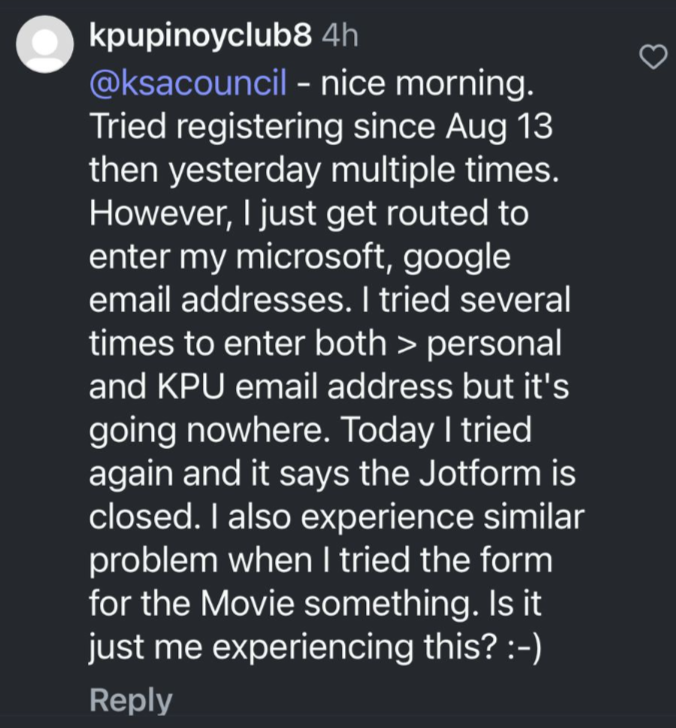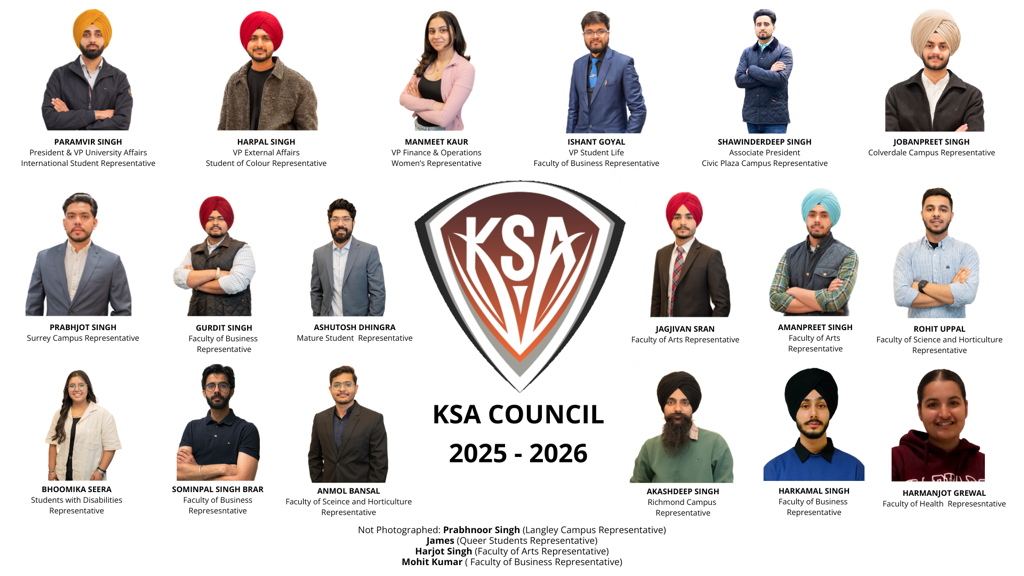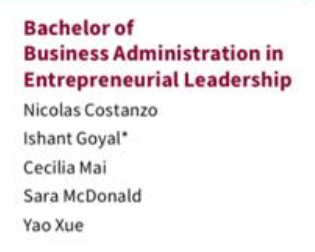One Campus to Rule Them All: How KSA’s Choices Advantage Surrey—and Sideline Everyone Else
Kwantlen Polytechnic University spans five campuses—Richmond, Surrey, Langley, Cloverdale (KPU Tech), and Civic Plaza in Surrey City Centre. That multi-campus reality isn’t a footnote; it’s the daily life of students who study and work where they are, not where student politicians wish they were. Even so, the Kwantlen Student Association (KSA) keeps centralizing perks, events, and access in Surrey, creating inequities that are now impossible to ignore.
Perks clustered in Surrey

Repeated KSA promotions restrict discounts to Surrey Member Services. Example: multiple Instagram posts and reels advertise $6 Cineplex tickets “from April 16–30 at the KSA Surrey office” or “from KSA Surrey member service,” often with limits per student. That’s a direct geographic advantage for Surrey-based students and a de facto barrier for students centered in Richmond, Langley, Cloverdale, or Civic Plaza.
This isn’t a one-off; it’s a pattern. When the KSA controls where benefits can actually be redeemed, students without easy access to Surrey are functionally excluded.
Events promoted to the public—then gone in a flash
Take the “Summer Splash” Cultus Lake Waterpark trip. The poster (shared to KSA’s social channels) announces the registration window and meetup at Grassroots Café (Surrey). Within minutes of the announced time, students on the post report broken forms, “sold out” notices, and no confirmations—despite hitting the link right away. The screenshots provided show complaints like “tried registering… it says the Jotform is closed,” “response received right away but no confirmation,” and “I tried at 7:30 pm and it says sold out.”



On paper, the event is open to everyone; in practice, the process feels closed. The gap between a publicly announced registration time and near-instant sell-outs (paired with inconsistent confirmation flow) reasonably fuels the perception that friends or insiders can access registrations before the wider student body. (KSA’s website promotes the event; the clustering around Surrey remains.)
Accessibility isn’t optional—centralizing meetups makes it harder
When events and perks are physically anchored to Surrey, students who rely on closer campuses—or who have mobility, chronic health, or scheduling constraints—encounter invisible barriers. They must either travel farther (often inter-city), forgo the perk, or attempt late, glitch-prone online registrations that vanish immediately. That’s an equity issue and an accessibility issue.
It’s fair to ask: where is the Students with Disabilities Representative in this conversation? According to KPU’s June 2025 Convocation Program, current Disabilities Rep Bhoomika Seera (Jiya) (Instagram) appears on the graduation roll—i.e., she graduated. Does that mean she can serve for months while not taking classes, even as accessibility concerns mount for current disabled students?
Who’s representing which campus—and from where?
The KSA Council poster posted around campus lists the 2025–26 campus reps, including Akashdeep Singh (Richmond), Jobanpreet Singh (Cloverdale), Shawinderdeep Singh (Civic Plaza), and Prabhnoor Singh (Langley). Yet many marquee events and most of the headline perks still funnel through Surrey. In a multi-campus union, representation without distributed access looks like theatre. What do these representatives have to say about such inequitable distributions of benefits?
 Source: https://kusa.ca/council/
Source: https://kusa.ca/council/
Serving while graduated: the legitimacy problem
Leadership continuity matters—but student representation also requires, well, being a student. The KSA’s own rules (as summarized by The Runner) require elected councillors to submit proof of registration each semester. Meanwhile, the June 2025 Convocation Program lists Ishant Goyal—the KSA’s current president—as a graduate (BBA in Entrepreneurial Leadership). Unless he’s also actively registered for new coursework, this raises a basic governance question: who is being paid with student fees to represent students, and will they remain students for the foreseeable future?

This same tension applies more broadly: when representatives (including constituency reps) graduate but remain in office, their incentive alignment with currently enrolled students weakens, especially across issues like commuting, course registration pain points, and campus-specific access.
Spending choices that amplify the perception of insiderism
In July, the KSA’s executive approved over $30,000 in concert tickets for distribution to students (Nirvair Pannu, Babbu Maan, Atif Aslam). The Rough math may fit within a budget line, but the method of distribution matters for equity: The Runner reports that 30 tickets for one show were given away on the Surrey campus by “asking random questions,” and that a promotional post was taken down “due to high demand.” The optics are exactly what you’d expect: scarce perks distributed in ways that privilege who is physically present in Surrey—and who is in the right place at the right time.
Why are all of these concerts geared for Indian audiences?
The Queer Students Representative who can’t set foot on campus
Multiple queer KPU students published an open Letter to the Editor stating that the KSA’s Queer Students Representative, Yuvraj Bains, has been temporarily restricted from accessing any KPU campuses by the Student Rights and Responsibilities Office (SRRO). In the same piece, they note he ran under the name “James,” was absent from the AGM oath of office, and has not engaged the campus queer community meaningfully. Whatever the underlying conduct matter, the practical effect is stark: a constituency rep barred from KPU spaces cannot perform core duties that depend on in-person presence.

One open question is does Yuvraj Bains (“James”) even identify as gay or queer? Representing the queer community while not being a member seems problematic in the very least. If not, the problem sharpens: representing the queer community while not being a member is, at the very least, a conflict of principle. Communities facing marginalization have long insisted: “Nothing for us without us.” If representation is to mean anything, it must be rooted in identity and accountability, not just a ballot slot filled under a pseudonym.
A similar question stands for Disabilities Representative Bhoomika Seera. Does she relate to her constituency by having a visible or invisible disability?
A representation gap KSA won’t measure
The current council appears visually homogeneous on official materials, and the election slate/candidates list shows a narrow band of names and networks repeating across roles. They all seem to be international students from India. How can they legitimately represent the needs of the entire student body at KPU? KSA does not publish demographic breakdowns of candidates or of the council, making it impossible to evaluate how well the board reflects KPU’s very diverse student body. The absence of demographic transparency deepens mistrust—especially when combined with Surrey-centric service delivery.
The bottom line
Across perks, event logistics, spending choices, and representative capacity, the through-line is consistent: students based outside Surrey face structural disadvantages created by the KSA’s own decisions. When discounts are redeemable only at Surrey, when high-demand events meet only at Surrey, when scarce tickets are handed out on Surrey, when a key constituency rep is barred from campus, and when some reps appear to have graduated while collecting student-funded stipends and salaries, students notice.
At a five-campus university, fairness isn’t a slogan; it’s about where benefits live, how access works, and who is accountable. Right now, the KSA’s choices privilege one campus—and the people at it—over everyone else.
Your words do carry weight. When used with intent, they can shift policies, spark dialogue, and protect what matters. 📩 Email KSA and KPU today.